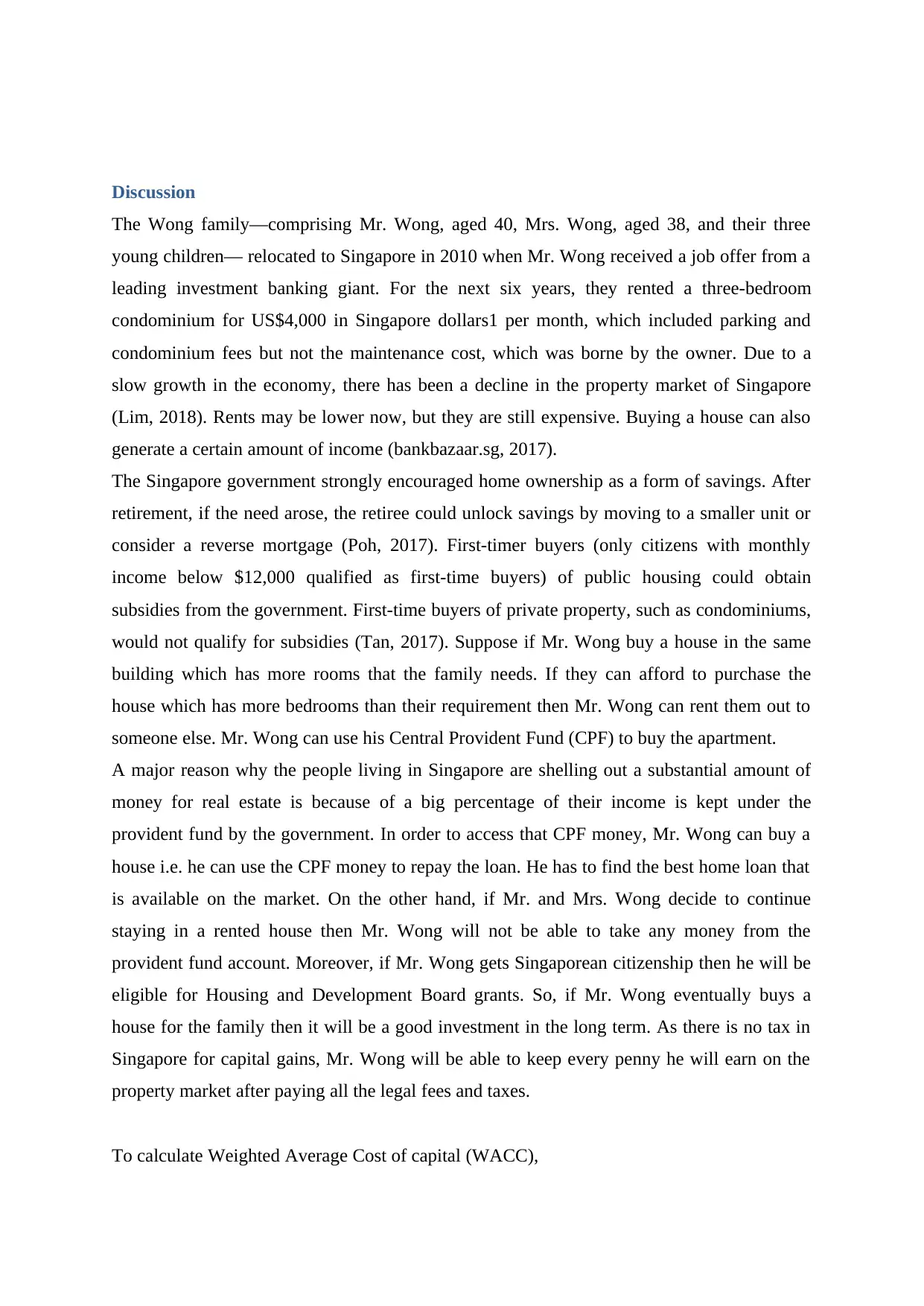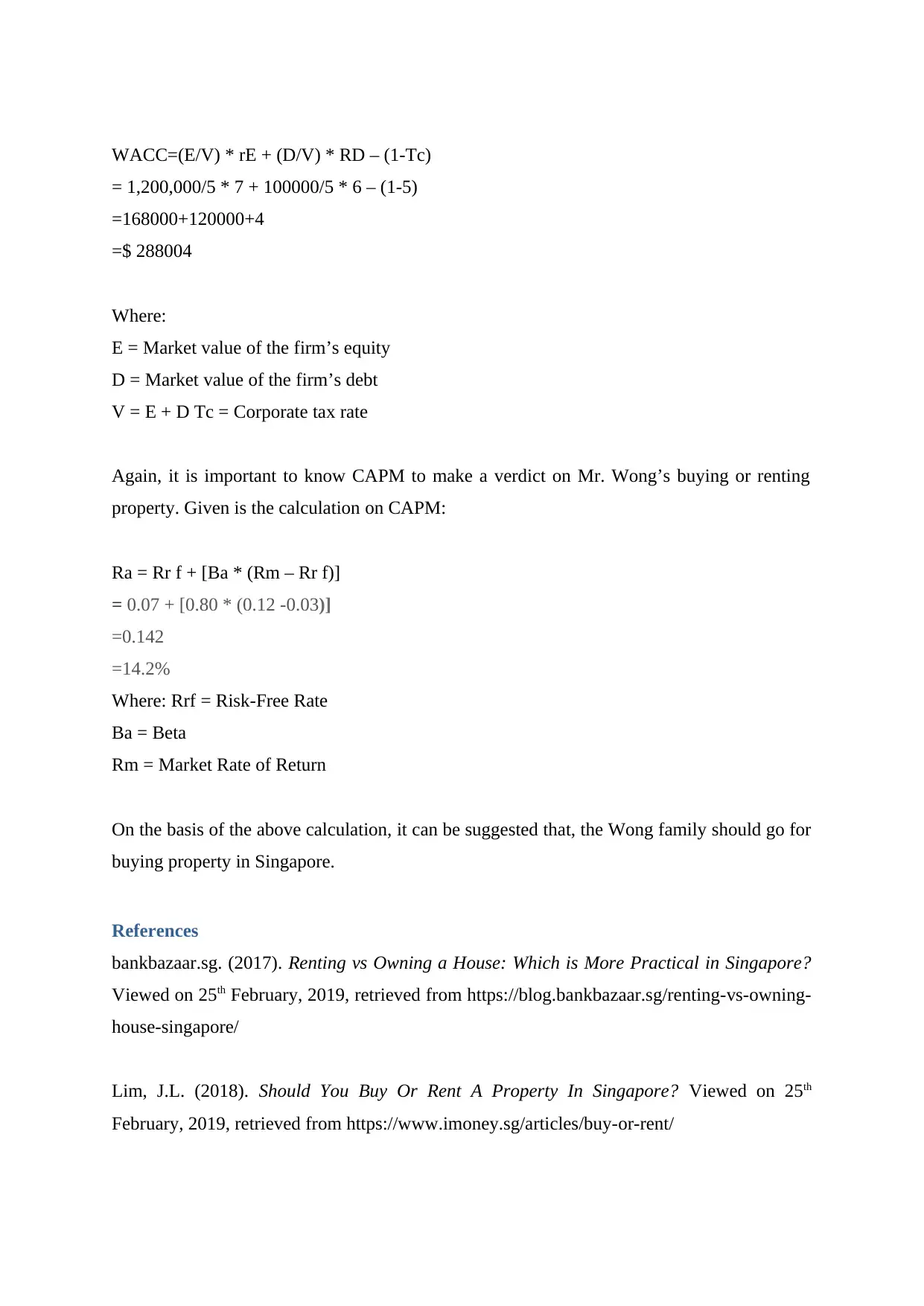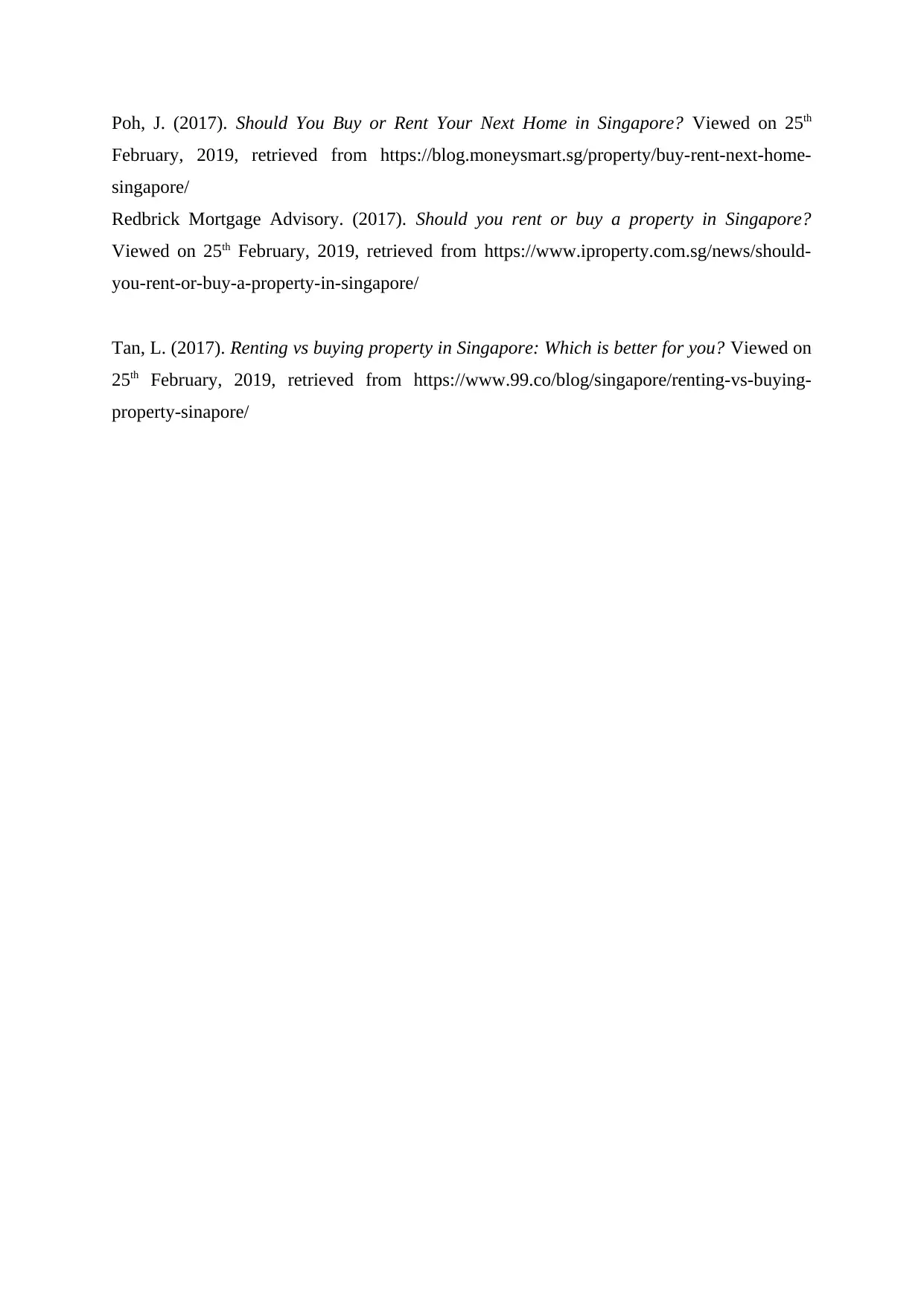Financial Analysis: Case Study of Buy vs Rent Decision in Singapore
VerifiedAdded on 2023/04/26
|5
|828
|411
Case Study
AI Summary
This case study examines the Wong family's decision to buy or rent property in Singapore after relocating in 2010. For six years, they rented a condominium, but with changes in the economy and the government's encouragement of home ownership, they are considering purchasing a home. The analysis includes the potential use of Mr. Wong's Central Provident Fund (CPF) for a home loan and eligibility for Housing and Development Board grants if he obtains citizenship. The case study uses Weighted Average Cost of Capital (WACC) and Capital Asset Pricing Model (CAPM) calculations to evaluate the financial implications, suggesting that buying property would be a beneficial long-term investment due to the absence of capital gains tax in Singapore. Desklib offers access to similar case studies and solved assignments for students.
1 out of 5






![[object Object]](/_next/static/media/star-bottom.7253800d.svg)